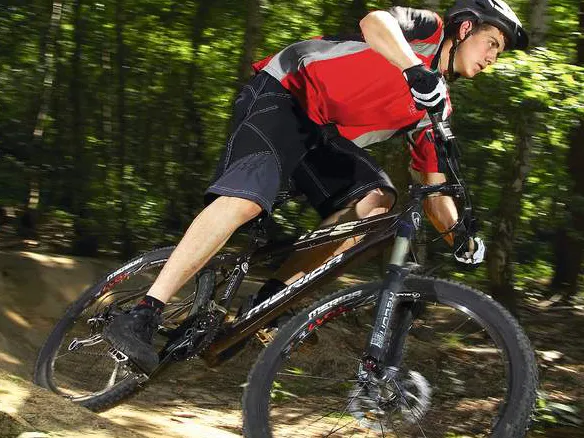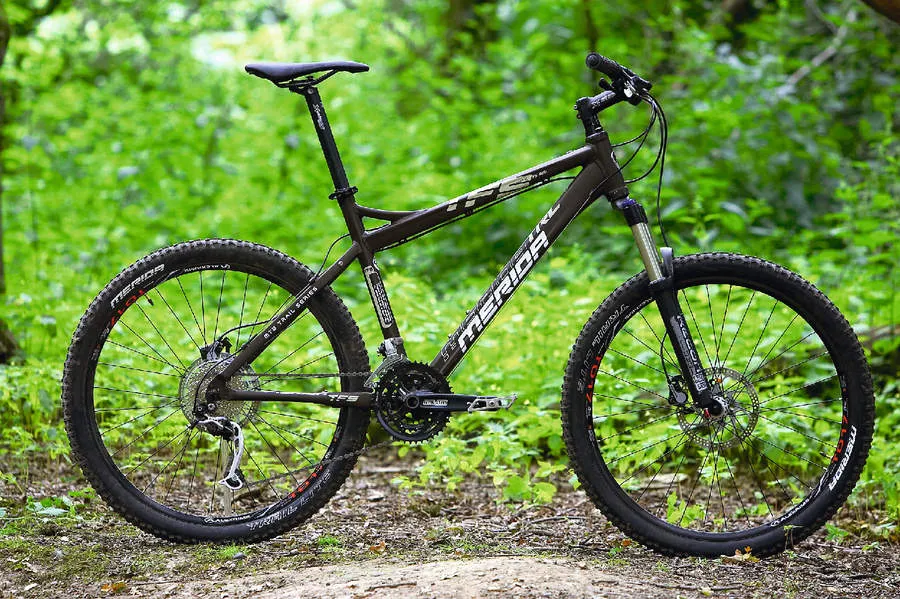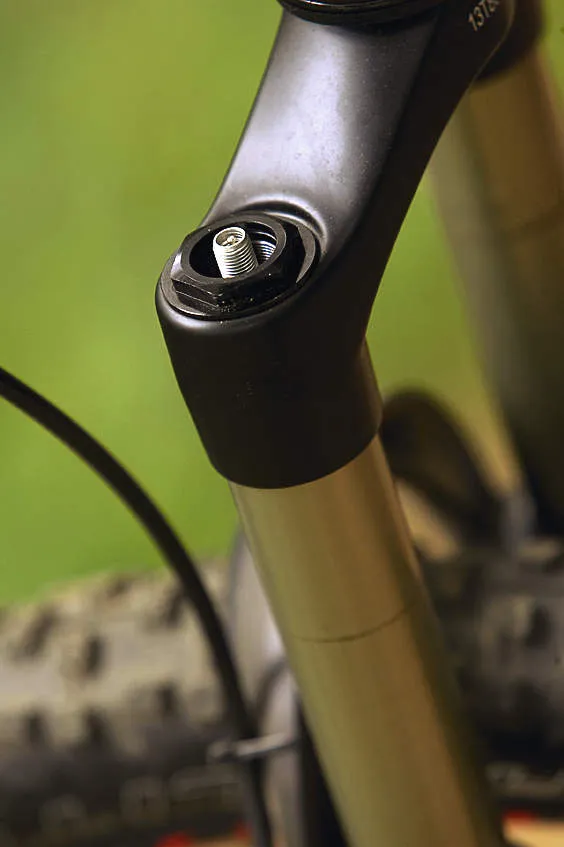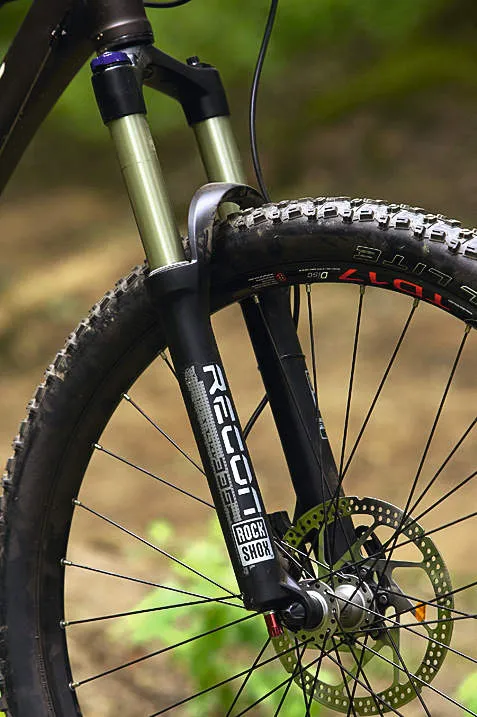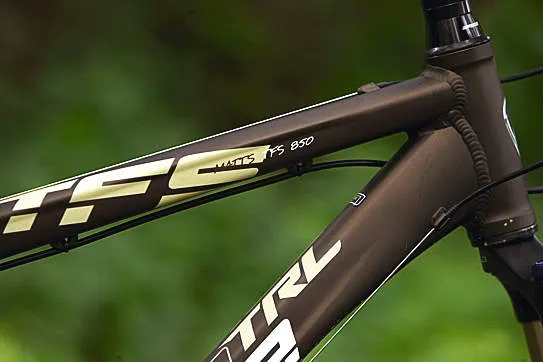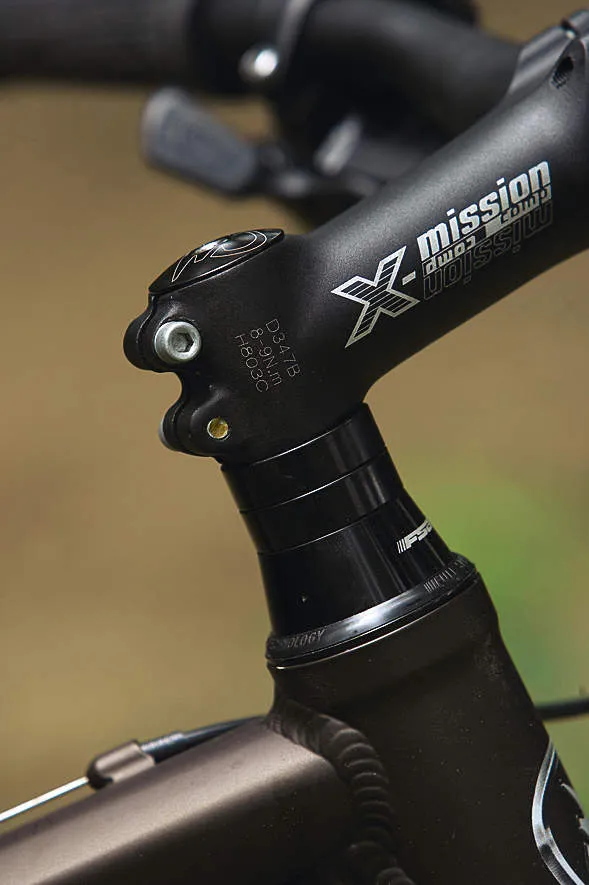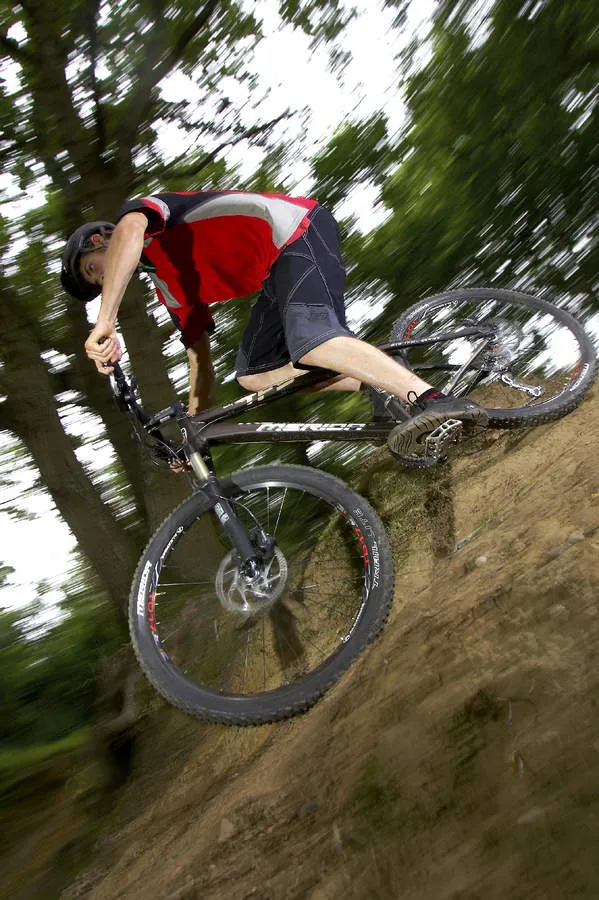This trail-riding hardtail blends brilliantly snappy handling, relatively low weight and great manners in a mix that adds up to add up to huge fun on the trail. It’s only major fault is a high front end that gives the front wheel a tendency to wander on steep climbs.
Merida are one of a growing number of companies who recognise that hardtail buyers aren’t all looking for the same thing. The Merida Matts TFS 850 Trail-D is the burlier of a pair of £800 hardtails with confusingly similar names.
Its cross-country stablemate, the lean, lithe and built-for-racing Matts TFS 800-D offers the traditional hardtail virtues of low weight and nimble responses.
This bike, the Matts TFS 850 Trail-D substitutes a burlier frame, longer travel fork and bigger tyres. The changes add up to far more than just extra heft.
Ride & handling: high grin factor combo of pace & strength
With its beefed-up frame but low overall weight and long top tube but relaxed head and seat angles, the Merida is a curious hybrid of cross-country efficiency and all- mountain ruggedness.
The stretched cockpit gives loads of room to move about, while a laidback front end gives the steering a responsiveness that makes split-second line changes and front wheel lofts a breeze.
The high bottom bracket keeps the pedals away from harm, and tyres with loads of air volume give plenty of grip and take the edge off the frame’s rigidity.
Slick stop-and-go components combined with a very competent fork top off the package, inspiring the kind of confidence that allows calculated risk-taking and flourishes of showboating – giving a good grin factor.
It’s not perfect. A comically tall top headset race with extra spacers makes the front wheel wander on steep climbs. But that’s our only real niggle and is easily changed.
For confidence-inspiring can-do and sheer all-round fun, the Merida is one of the best combinations of pace and strength that we’ve ridden.
Chassis: Merida’s own technologies plus spot-on fork
There’s a reason behind the tongue-twisting name. ‘MATTS’stands for Merida Aluminium TIG-welding Technology System – a fancy way of drawing attention to the fact that Merida has its own production facilities and, unlike the vast majority of bike manufacturers, makes all its frames in-house.
And ‘TFS’ is short for Techno Forming System, Merida’s proprietary mechanical forming system, which allows for complex tube profiles along similar lines to the more costly hydroforming technology, albeit without the same capacity to vary wall thickness.
Translated, that means most of the strength and stiffness benefits of hydroforming but at a slight weight penalty – although, at 27lb all-in (12.2kg), this isn’t a heavy bike as trail hardtails go.
Merida have clearly been putting in the hours on the TFS 850’s frame, which boasts flared and bulged top and down tubes as well as complex profile chainstays. Big tube diameters, large weld areas and the extended seat tube with additional top tube brace hint at strength and stiffness – it’s clearly aimed at riders who enjoy hammering the descents as much as the climbs.
Rack mounts add some everyday practicality, although there’s only space for a single set of bottle mounts inside the compact main triangle. The wraparound seat clamp collar is neat, and the overall finish and attention to detail is excellent.
The Merida’s hard-riding potential is emphasised by the choice of fork. The RockShox Recon air blends reasonable weight and easy adjustment for different rider weights and riding styles with 120mm (4.7in) of plush, well damped travel. There are stiffer mid-travel forks, but this compromise between rock swallowing ability and all-round agility is great.
Equipment: great go and stop from careful spec
A blend of Shimano Deore, Dore LX and Dore XT components gives both a slick-shifting transmission and – after briefly bedding in – peerless stopping power.
It’s around this price level that minor differences in gear and brake performance start to make a real difference, and the TFS 850 delivers the kind of instantaneous control responses we’d normally associate with much more expensive bikes.
Contact points are own-branded and well up to the job, while the generously profiled tyres provide plenty of grip and cushioning to counter some of the very rigid frame’s inherent harshness.
